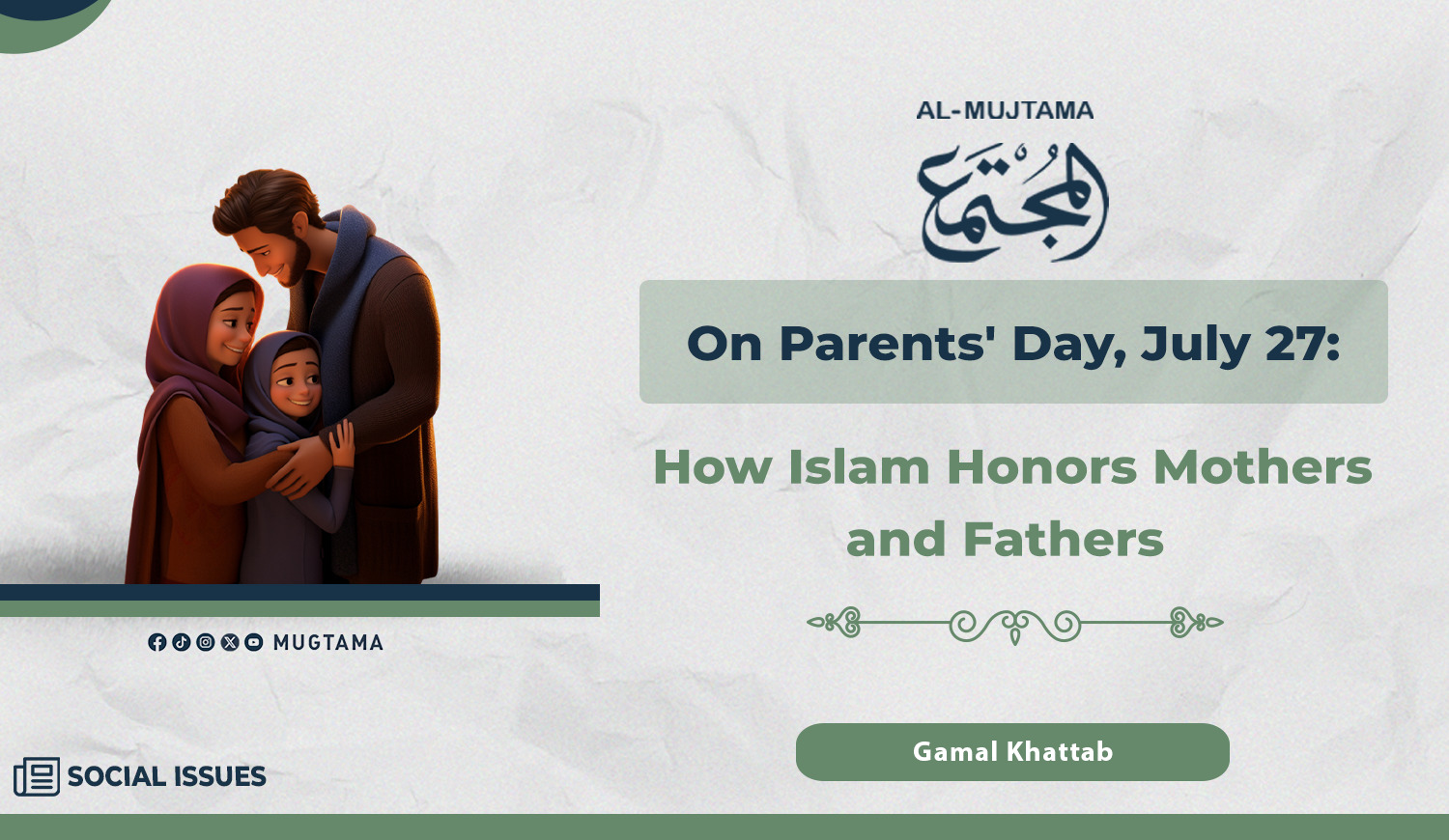“Do not say to them 'uff' nor repel them”
On Parents' Day, July 27: How Islam Honors Mothers and Fathers

Today, the world celebrates Parents' Day 2025, and social media platforms are abuzz with tributes to fathers, reflections, and touching messages. The trends include humorous posts and thank-you messages, and there's a beautiful phrase circulating on social media platforms: "Stop them from growing old." This phrase embodies an overwhelming desire to preserve our parents' love, strength, and presence.
In Islam, honoring parents is not
limited to caring for them on one day each year. Rather, caring for parents is
a lifelong Islamic act of worship, deeply rooted in the hearts of believers.
Honoring parents is a divine
commandment revealed in the Qur'an.
Islam places honoring parents second
only to the belief in the Oneness of God.
A Divine Command: Honoring Parents in the Qur’an
Islam places parental respect just beneath the worship of Allah. The Qur’an
repeatedly emphasizes kindness, gratitude, and humility toward one’s parents:
For your Lord has decreed that you worship none but Him. And honour your
parents. If one or both of them reach old age in your care, never say to them ˹even˺ ‘ugh,’ nor yell
at them. Rather, address them respectfully. And be humble with them out of
mercy, and pray, “My Lord!
Be merciful to them as they raised me when I was young.”
Surah Al-Isra (17:23–24)
"And We have commanded people to ˹honour˺ their
parents. Their mothers bore them through hardship upon hardship, and their
weaning takes two years. So be grateful to Me and your parents. To Me is the
final return." Surah Luqman (31:14)
These verses really reflect a sacred bond that transcends
time, culture, and personal hardship.
Prophetic Teachings: Hadiths on Parental Virtue
The Prophet Muhammad (peace be upon him) honored parents and
elevated their status through his words and actions:
Look at this hadith,
which highlights the mother’s unparalleled sacrifices and emotional labor.
Abu Hurayrah (may Allah be pleased with him) reported that a
man came to the Messenger of Allah (may Allah's peace and blessings be upon
him) and said: "O Messenger of Allah, who is the most entitled among
people to my good companionship?" He said: "Your mother." The
man said: "Who next?" He said: "Your mother." The man asked
again: "Who next?" He replied: "Your mother." The man
further said: "Who next?" He said: "Your father." In
another narration, the man asked: "O Messenger of Allah, who is the most
entitled among people to my good companionship?" He said: "Your
mother, then your mother, then your mother, then your father, and then those
who are the closest to you."
This is another
Hadith: Prophet Muhammad ﷺ
was once approached by a man seeking permission to participate in jihad. The
Prophet asked him:
“Are your parents alive?” The man replied, “Yes.” The Prophet
said: “Then strive in their service.” (Sahih al-Bukhari, Book 52, Hadith 248)
This is a powerful exchange that highlights how Islam
considers serving one’s parents as a form of jihad—especially when they are
elderly or in any need. It reminds us that devotion at home can be just as
great as struggle on the battlefield.
These teachings show that serving parents is not just
moral—it’s worship.
A Global
Reflection on Parents’ Day 2025
Parents’ Day has
sparked a wave of gratitude online this day. Posts expressed great nostalgia
and honesty:
“You don’t need a break. You need guilt. Guilt that your
parents showed up every day—no matter what. And you? You called it a ‘bad day’
and gave up. Let it hurt. Let it fix you.”
“They held our hands when we took our first steps… and never
really let go, even when we thought we could do life on our own.”










